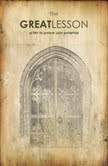
Check out this great article by Alex Green who looks to answer the age old question: does more money mean more happiness?
“How little has situation to do with happiness.”
- Fanny Burney
STUMBLING ON HAPPINESS
By Alex Green
The recent decline in home values and the stock market – not to mention corporate and municipal bond markets – has left most investors with less than they had a year ago. To meet their long-term investment goals, many will have to spend less and save more than they originally planned.
This is not easy. As the economist Adam Smith wrote in The Wealth of Nations in 1776:
“The desire for food is limited in every man by the narrow capacity of the human stomach; but the desire of the conveniences and ornaments of building, dress, equipage, and household furniture, seems to have no limit or certain boundary.”
In the current economic downturn, many of us are unable to afford all the things we want. That pinches. But should it make us unhappy?
That depends. But for most of us, the answer is a resounding no.
As Harvard psychologist Daniel Gilbert writes in Stumbling On Happiness:
“Economists and psychologists have spent decades studying the relation between wealth and happiness, and they have generally concluded that wealth increases human happiness when it lifts people out of abject poverty and into the middle class but that it does little to increase happiness thereafter. Americans who earn $50,000 per year are much happier than those who earn $10,000 per year, but Americans who earn $5 million per year are not much happier than those who earn $100,000 per year. People who live in poor nations are much less happy than people who live in moderately wealthy nations, but people who live in moderately wealthy nations are not much less happy than people who live in extremely wealthy nations. Economists explain that wealth has ‘declining marginal utility,’ which is a fancy way of saying that it hurts to be hungry, cold, sick, tired, and scared, but once you’ve bought your way out of these burdens, the rest of your money is an increasingly useless pile of paper.”
If this is true, why are so many people out there busting their humps for more?
For some, it is the pursuit of financial independence, a worthy goal. But for others, the answer lies in their increasingly materialistic ways.
We all must consume to survive, of course. But when consumerism becomes an end in itself, when it overruns more important ideals, provides the measure of our success, or corrodes our capacity to know truth, see beauty, or feel love, our lives are diminished.
Some will argue that for economies to flourish, we need rampant consumerism. It is consumers’ insatiable hunger for more stuff that fuels the economic engine.
In many ways, this is true. In fact, the notion itself is hardly new. In 1759, Adam Smith wrote in The Theory of Moral Sentiments:
“The pleasures of wealth and greatness… strike the imagination as something grand and beautiful and noble, of which the attainment is well worth all the toil and anxiety which we are so apt to bestow upon it. … It is this deception which rouses and keeps in continual motion the industry of mankind.”
Notice that Smith, the father of the concept of free markets, referred to the endless pursuit of more as “this deception.” He recognized that the needs of a vibrant economy and the requirements for us to be happy as individuals are not the same.
Studies show that the riches and material goods we desire – should we have the good fortune to acquire them – won’t necessarily make us happier. Yet we often imagine they will, even when experience teaches us otherwise.
Walk into your local auto dealership, for example, and check out the cars in the showroom. They look sharp. They smell good. The tires have been blackened. The exteriors have been waxed and polished and Windexed until they gleam. In short, we are seduced by their newness.
And even though we know that a new automobile is perhaps the world’s fastest-depreciating asset – and within weeks we will be mindlessly traveling from point A to point B without a second thought about our vehicle’s make or model – we plunk for one.
As my grandmother used to say, “Most people can’t tell the difference between what they want and what they need.” (This remark, incidentally, was generally directed toward me and my latest two-dollar object of fascination at F.W. Woolworth.)
Look around today and you’ll have no problem finding folks with plenty of neat things: big cars, fancy boats, the latest electronic gadgets, and all sorts of expensive “bling.” They seem to have it all. What you may not realize is how many of them are two payments from the edge.
Yet some middle-class Americans remain obsessed with what they don’t have. To some, it just doesn’t seem right – doesn’t seem fair – that others have so much more than they do. But as political satirist P.J. O’Rourke observed:
“I have a 10-year-old at home, and she is always saying, ‘That’s not fair.’ When she says that, I say, ‘Honey, you’re cute; that’s not fair. Your family is pretty well off; that’s not fair. You were born in America; that’s not fair. Honey, you had better pray to God that things don’t start getting fair for you.’”




